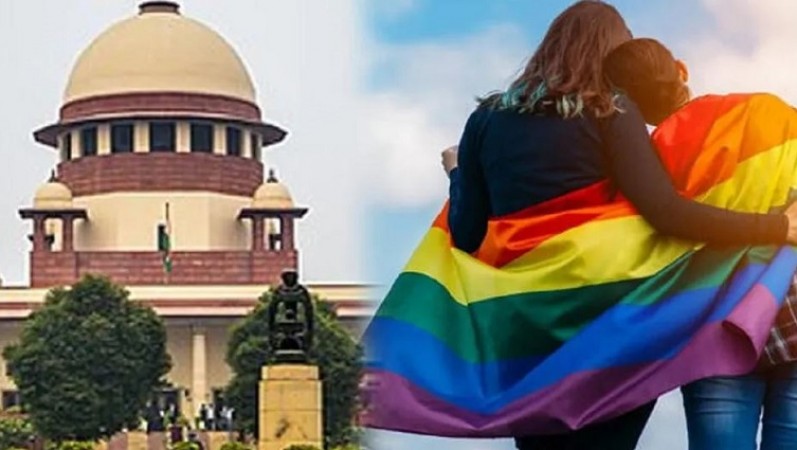
New Delhi: In a major decision, the Supreme Court of India, on Tuesday, October 17, issued its verdict on petitions seeking legal recognition for same-sex marriages, firmly asserting that the establishment of same-sex marriage as a fundamental right cannot be endorsed. The court maintained that the responsibility for determining the necessity of amending the Special Marriage Act (SMA) lies squarely with the Parliament.
Delivering the judgment, Chief Justice of India DY Chandrachud emphasized that if the court finds Section 4 of the Special Marriage Act (SMA) to be unconstitutional due to its perceived limitations, it must either strike down the section or interpret it more expansively. However, if the SMA is invalidated, it would revert the nation to a pre-Independence legal framework, while interpreting the SMA in a more inclusive manner would usurp the legislative role.
The apex court clarified that it lacks the authority to engage in the process of interpreting statutes, as this is a prerogative of the legislature. Chief Justice Chandrachud underlined, "This Court must exercise caution and refrain from encroaching upon the legislative domain. It falls to the Parliament to decide whether modifications to the Special Marriage Act are warranted."
Justice Chandrachud further stated, "I have considered the issue of judicial review and the separation of powers. The doctrine of separation of powers mandates that each of the three branches of government performs distinct functions, and no branch may encroach upon the functions of others. While the Union of India has suggested that this Court would transgress the separation of powers by determining the list, the doctrine of separation of powers does not preclude the power of judicial review. The Constitution obliges this Court to safeguard the fundamental rights of citizens. The doctrine of separation of powers does not impede this Court from issuing directives to protect these rights."
The bench also asserted that the right to enter into a union encompasses the right to choose one's partner and the right to the recognition of such a union. Failure to acknowledge these relationships would constitute discrimination against LGBTQ+ couples. Notably, the Solicitor General of India pledged that the government would establish a committee to assess the rights that can be conferred upon such couples.
The bench contended that these relationships require recognition for the complete realization of their benefits and that the denial of basic goods and services would indirectly infringe upon personal freedom if such unions are not acknowledged.
Chief Justice Chandrachud added, "Queerness is not limited to urban elites, and homosexuality or queerness is not exclusive to urban areas or the upper echelons of society. It is not just English-speaking or white-collar individuals who can identify as queer; it is equally applicable to a woman working in an agricultural role in a rural setting. To assume that queer individuals are solely found in urban, privileged spaces is to erase their existence. Not all city residents can be categorized as elite. Queerness transcends caste, class, or socio-economic status. It is inaccurate to characterize marriage as a static and unchanging institution. Legislative acts have ushered in changes to the institution of marriage."
A five-judge constitutional bench, including Chief Justice of India (CJI) DY Chandrachud and Justices Sanjay Kishan Kaul, Ravindra Bhat, Hima Kohli, and PS Narasimha, issued the verdict on a series of pleas seeking legal recognition for same-sex marriages and equal legal rights and privileges for LGBTQ+ couples in comparison to heterosexual couples.
The top court presented four separate judgments – one from CJI DY Chandrachud, one from Justice Sanjay Kishan Kaul, one from Justice Ravindra Bhat, and one from Justice PS Narasimha. Chief Justice Chandrachud acknowledged, "There is a degree of consensus and a degree of dissension regarding the extent to which we should proceed," as he read out the verdict.